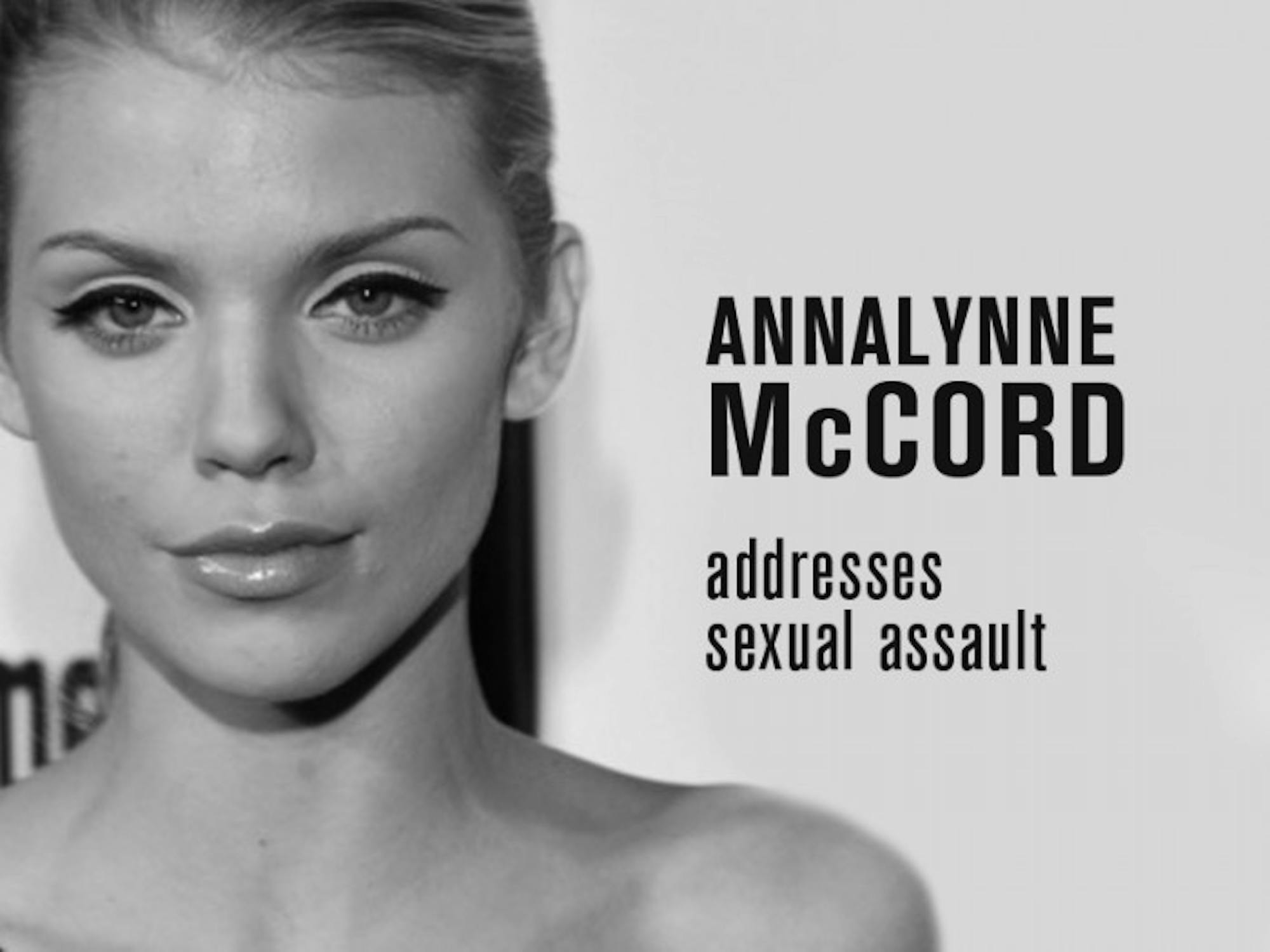
Actress Anna Lynne McCord, who starred as Naomi Clark in "90201" and has appeared in a slew of shows ranging from "Nip/Tuck" to "The O.C.," is presenting a talk titled “It Starts With Me: Healing and Forgiveness” in LaFortune Ballroom at 8 p.m. today. McCord will share her experiences as an actress, a woman and a victim of sexual assault.
Though sexual assault is often discussed via shocking numbers and generalized bystander advice, Anna Lynne McCord clearly aims to bring a more powerful, visionary point of view to the table. Given the series of sexual assault cases reported at the University last year, such a perspective comes at a vital time in this school’s history. This Tuesday, I was privileged to talk to Ms. McCord about her presentation.
It’s awesome to have you at Notre Dame. So your talk is titled “It Starts With Me” – could you explain a bit of what you’re talking about?
The title definitely sums it up. I will be speaking about kind of an overall of my life, but specifically about an event that happened when I was eighteen — I was sexually assaulted by a friend. I’ll discuss the stereotyped beliefs around rape and sexual assault, how my dress does not mean yes and all these things that we have basically perpetuated with societal beliefs system and conditioning about rape and the victim, and I’ll try to debunk some of that. Then I’ll go into detail about where I am now and how the healing process really requires one thing and one thing only, and that’s forgiveness. Because once you have that, you can achieve all of the healing and repair you need to overcome and move forward. This is not so much about vindication and justice as it is about the survivor, the healing process and what they feel is best for them.
What kind of impact do you hope to have on students who attend your talk, and what kind of impact do you hope those students will then go out and have on the rest of campus?
What I want to do is engage the next generation in a conversation that keeps going. I don’t want this to end when I stop speaking. I want it to start a conversation amongst yourselves. Because you know what? We need to talk about sex, and we need to stop pushing it under the carpet. We need to understand what it is. Why are we making it a shameful, guilty, dirty thing, and therefore making the person who was victimized take on that shame? I’m going to talk loudly about what happened to me, and candidly. Part of this process about removing guilt and shame is about getting real. I’d love for the men and women coming to come away with a sense that just because a society believes it, just because a religion believes it, just because my parents believe it, doesn’t mean it’s right for me.
That’s extremely relevant for Notre Dame, especially due to the kind of conflict between sex and talking about sex, especially when many people assume – or want to assume – it’s a non-issue for them. Given that you’ll talk more in detail about that topic later, I’m going to move into more Scene-specific questions. Do you think there are any recent developments, whether cultural or technological, that complicate our views of relationships or a realistic view of sex?
I think all of the above do. I’m reading this book called “Sex at Dawn." It’s not as sexy as sex at dawn; it’s about our ancestors who were hunter-gatherers and sex in those communities. They shared all responsibility, all food, all sex. It wasn’t seen as a dirty thing or an amazing thing, it was just a part of their lives. We’ve seen a decline in what was a completely equal man-woman relationship since these hunter-gatherer communities. When we decided to have private property, that women — and this is a decision — that women want to be cared for and that men wanted to have a woman that was just theirs, that would only have their children — what began was a pushing-down of female rights. Women stopped being able to own property. It’s not indicative of female libido; women didn’t want to be with just one man. It was a societal transformation. It wasn’t necessarily indicative of the truth. In 2014, we see all of these movies and T.V. shows — and I’m guilty of being an actress in them, you know — the girls who are praised and lauded are the ones who are “virtuous,” and they’re labeled a slut if they’re not that way. I think it is the labeling that is a problem. I think if you decide to save sex for marriage, that’s a beautiful thing. But when society tells you that “you’re a slut if you do it this way” or “you’re good if you do it this way,” that’s when we start changing people from who they really are.













